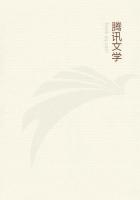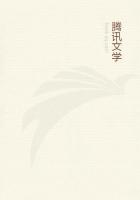I have stated in the first chapter, that there is some evidence to render it probable, that at whatever age any variation first appears in the parent, it tends to reappear at a corresponding age in the offspring. Certain variations can only appear at corresponding ages, for instance, peculiarities in the caterpillar, cocoon, or imago states of the silk-moth; or, again, in the horns of almost full-grown cattle. But further than this, variations which, for all that we can see, might have appeared earlier or later in life, tend to appear at a corresponding age in the offspring and parent. I am far from meaning that this is invariably the case; and I could give a good many cases of variations (taking the word in the largest sense) which have supervened at an earlier age in the child than in the parent.
These two principles, if their truth be admitted, will, I believe, explain all the above specified leading facts in embryology. But first let us look at a few analogous cases in domestic varieties. Some authors who have written on Dogs, maintain that the greyhound and bulldog, though appearing so different, are really varieties most closely allied, and have probably descended from the same wild stock; hence I was curious to see how far their puppies differed from each other: I was told by breeders that they differed just as much as their parents, and this, judging by the eye, seemed almost to be the case; but on actually measuring the old dogs and their six-days old puppies, I found that the puppies had not nearly acquired their full amount of proportional difference. So, again, I was told that the foals of cart and race-horses differed as much as the full-grown animals; and this surprised me greatly, as I think it probable that the difference between these two breeds has been wholly caused by selection under domestication; but having had careful measurements made of the dam and of a three-days old colt of a race and heavy cart-horse, I find that the colts have by no means acquired their full amount of proportional difference.
As the evidence appears to me conclusive, that the several domestic breeds of pigeon have descended from one wild species, I compared young pigeons of various breeds, within twelve hours after being hatched; I carefully measured the proportions (but will not here give details) of the beak, width of mouth, length of nostril and of eyelid, size of feet and length of leg, in the wild stock, in pouters, fantails, runts, barbs, dragons, carriers, and tumblers. Now some of these birds, when mature, differ so extraordinarily in length and form of beak, that they would, I cannot doubt, be ranked in distinct genera, had they been natural productions. But when the nestling birds of these several breeds were placed in a row, though most of them could be distinguished from each other, yet their proportional differences in the above specified several points were incomparably less than in the full-grown birds. Some characteristic points of difference for instance, that of the width of mouth -- could hardly be detected in the young. But there was one remarkable exception to this rule, for the young of the short-faced tumbler differed from the young of the wild rock-pigeon and of the other breeds, in all its proportions, almost exactly as much as in the ***** state.
The two principles above given seem to me to explain these facts in regard to the later embryonic stages of our domestic varieties. Fanciers select their horses, dogs, and pigeons, for breeding, when they are nearly grown up: they are indifferent whether the desired qualities and structures have been acquired earlier or later in life, if the full-grown animal possesses them. And the cases just given, more especially that of pigeons, seem to show that the characteristic differences which give value to each breed, and which have been accumulated by man's selection, have not generally first appeared at an early period of life, and have been inherited by the offspring at a corresponding not early period. But the case of the short-faced tumbler, which when twelve hours old had acquired its proper proportions, proves that this is not the universal rule; for here the characteristic differences must either have appeared at an earlier period than usual, or, if not so, the differences must have been inherited, not at the corresponding, but at an earlier age.
Now let us apply these facts and the above two principles which latter, though not proved true, can be shown to be in some degree probable to species in a state of nature. Let us take a genus of birds, descended on my theory from some one parent-species, and of which the several new species have become modified through natural selection in accordance with their diverse habits. Then, from the many slight successive steps of variation having supervened at a rather late age, and having been inherited at a corresponding age, the young of the new species of our supposed genus will manifestly tend to resemble each other much more closely than do the adults, just as we have seen in the case of pigeons. We may extend this view to whole families or even classes. The fore-limbs, for instance, which served as legs in the parent-species, may become, by a long course of modification, adapted in one descendant to act as hands, in another as paddles, in another as wings; and on the above two principles namely of each successive modification supervening at a rather late age, and being inherited at a corresponding late age the fore-limbs in the embryos of the several descendants of the parent-species will still resemble each other closely, for they will not have been modified. But in each individual new species, the embryonic fore-limbs will differ greatly from the fore-limbs in the mature animal; the limbs in the latter having undergone much modification at a rather late period of life, and having thus been converted into hands, or paddles, or wings.















